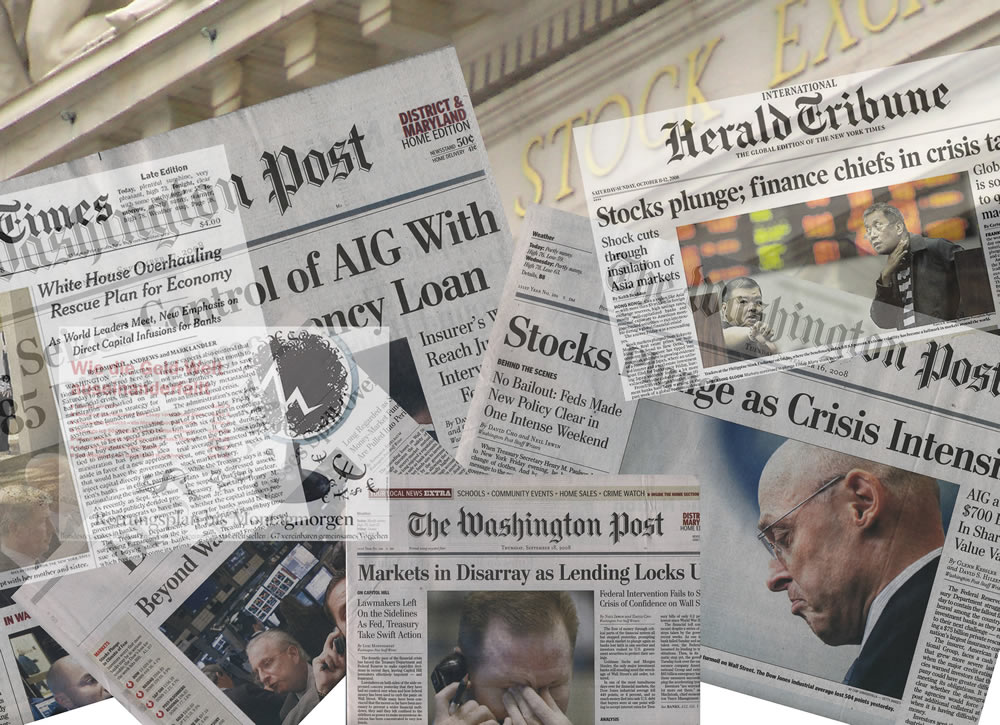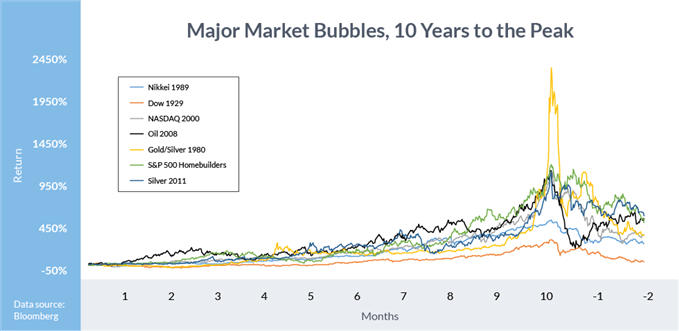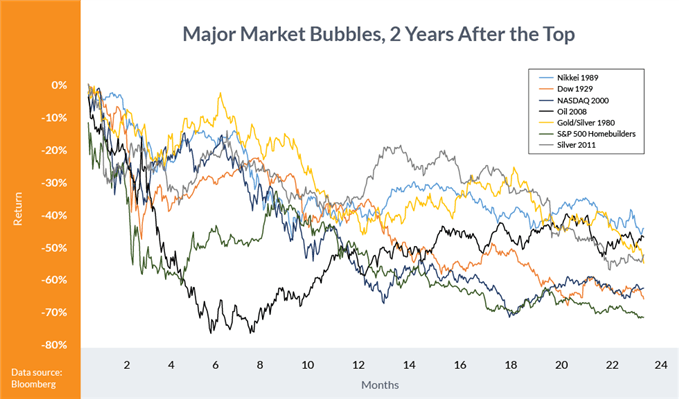By DailyFX.com
There are speculations that the global economy is headed towards a recession. The escalation in the US-China trade war, the inhibiting growth in the US, the long recession in Germany, the Chinese debt crisis and Brexit uncertainty all indicate a looming financial crisis.
It seems circumspect, then, to look back before we try to plan ahead. How do financial crises occur, what factors cause them and what are the early signs to predict one?
Financial Crisis Headline Montage (pingnews) by pingnews.com is licensed under CC BY 2.0
What is a Financial Crisis?
When a financial crisis occurs, financial institutions face liquidity shortages, businesses and individuals are unable to pay their loans and asset prices see a slump in their value. Most often investors frantically sell off their assets or withdraw money from savings accounts during a financial crisis, fearing the value of their assets might fall if they remain in a financial institution.
Other situations that can be seen as a financial crisis include a stock market crash, a financial bubble burst, a sovereign default or a currency crisis. A financial crisis can be as limited as only affecting one bank or as widespread as affecting global economies. When the financial stability of individuals and organisations dwindle, it could mean an inevitable crisis.
Free Reports:
 Get Our Free Metatrader 4 Indicators - Put Our Free MetaTrader 4 Custom Indicators on your charts when you join our Weekly Newsletter
Get Our Free Metatrader 4 Indicators - Put Our Free MetaTrader 4 Custom Indicators on your charts when you join our Weekly Newsletter
 Get our Weekly Commitment of Traders Reports - See where the biggest traders (Hedge Funds and Commercial Hedgers) are positioned in the futures markets on a weekly basis.
Get our Weekly Commitment of Traders Reports - See where the biggest traders (Hedge Funds and Commercial Hedgers) are positioned in the futures markets on a weekly basis.
What Are the Causes of a Financial Crisis?
Multiple issues can lead to a financial crisis. One common cause is the overvaluation of institutions and assets, which can be worsened by irrational or herd-like investor behaviour. Rapid asset sell offs can lower asset prices, compelling individuals to dump assets or withdraw savings when a bank is rumoured to fail.
Other significant contributing factors are systemic failures, uncontrollable and sudden shift in human behaviour, regulatory failures, incentives to take huge risks and contagion factors that spread crisis across geographic areas.
Even when individuals and organisations have taken preventive measures, a financial crisis can still happen, accelerate and worsen.
Early Warning Signs to Help You Predict the Next Financial Crisis
- Consistent stock market losses – The stock market indicates the overall economic health. Though a stock market plunge is not always a sign of recession, there are plenty of reasons why we should take notice of the lows in the stock market for a hint of a looming financial crisis. The longer a bear market lasts, the greater the chances it is signalling a recession.
- High wage growth – The top expense for businesses is employee salaries. When unemployment levels reduce there are less qualified workers in the job market and companies have to offer higher wages. Wage inflation results in an unsustainable expense for companies, and as a result they slow growth and cut jobs.
- Rising inflation – Like growing wages, a small amount of inflation is considered a good thing. It means unemployment is low and people are paid well, which encourages them to spend money. But when inflation rises steeply it forces an increase in interest rates. That in turn makes borrowing more expensive. When companies are already expecting an economic slowdown, they are even less likely to invest in new talent and equipment if interest rates increase.
- Low unemployment rates – Recession watchers and experts know that a super-low unemployment rate can become a catalyst for an economic slowdown. In the past the US economy has witnessed a financial crisis after nine months of the unemployment rate reaching its lowest point.
- Drops in housing construction and sales – A major driver of the US market is the housing industry, which adds up to one-sixth of the country’s GDP. Economists like to pay close attention to the number of new housing projects, as it indicates builders are confident that the economy will grow and perform well. Otherwise, if housing projects stall and reduce, it could be a warning sign of a recession.
Financial crises can turn the economy upside down. These events can force people to change the way they work and face several challenges. It is better to be armed with the knowledge to know when a financial crisis is around the corner so that you can prepare to face the situation and fare the time well.
By DailyFX.com



